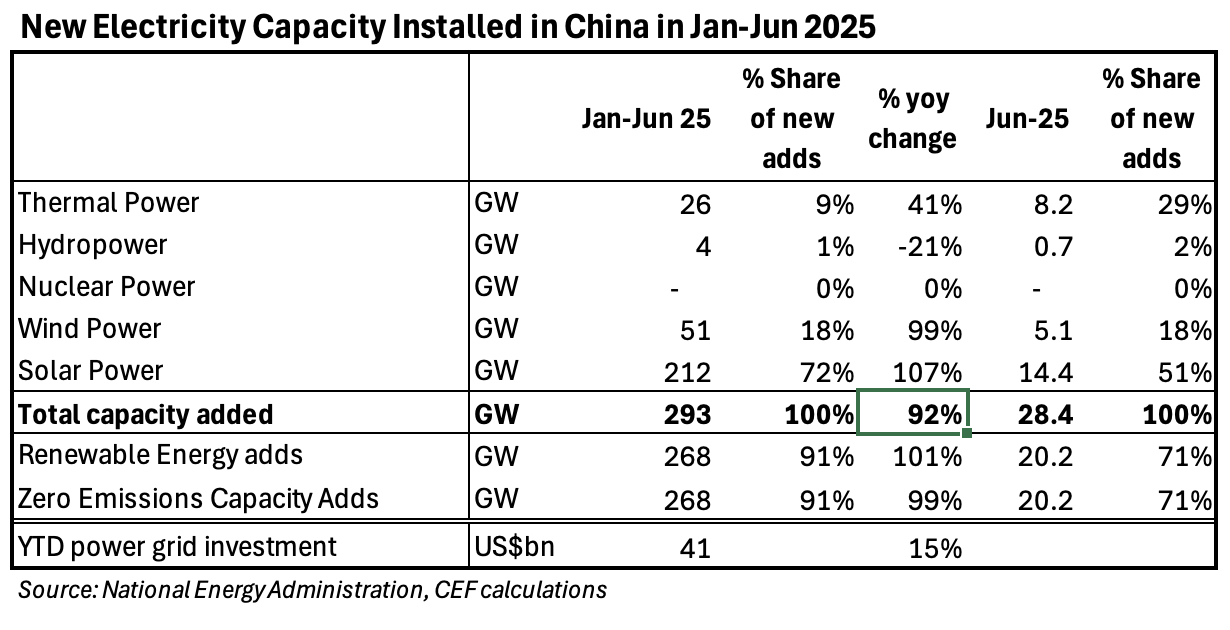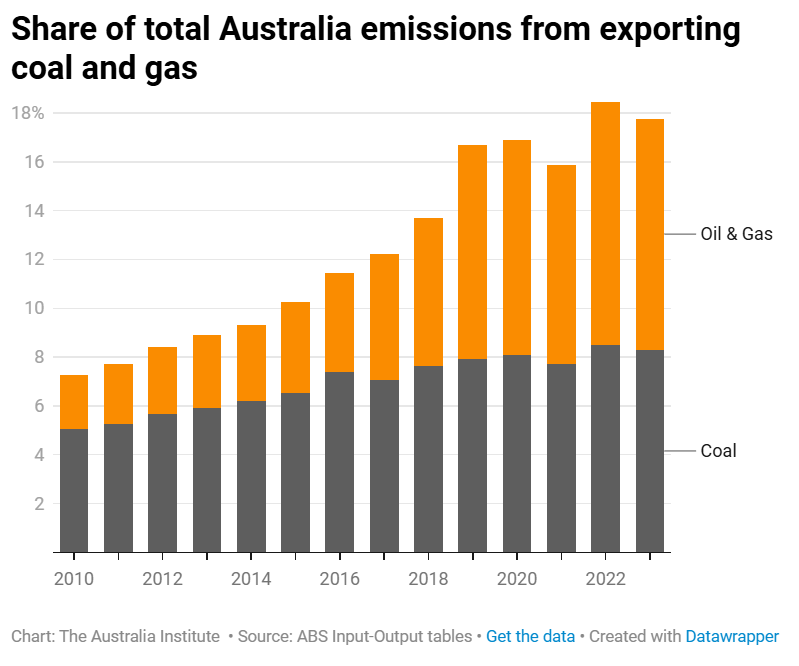As a cabal of Nats and reactionary independents push their case to dump net zero, the UN’s top climate official lands, reignites debate on climate. Stephanie Tran reports.
The UN’s top climate official has implored Australia to be ambitious with its 2035 emissions reduction target as the Albanese government continues to approve new coal and gas projects.
The stealthy approval of yet another two gas projects in recent days by the Minister for the Environment brings the Labor total now to 20 fossil fuel projects since 2022. This at a time when global climate authorities are demanding no new fossil fuel projects.
Speaking at a Smarter Energy Council event on Monday, UN Climate Change Executive Secretary Simon Stiell urged Australia to seize the opportunity to reshape its economy and align with a rapidly decarbonising global economy.
“Bog standard is beneath you”
“Don’t settle for what’s easy – bog standard is beneath you. Go for what’s smart by going big. Go for what will build lasting wealth and national security. Go for what will change the game and stand the test of time,” Stiell said.
Stiell’s comments come as Nationals MP Barnaby Joyce and One Nation’s Pauline Hanson push a private member’s bill to scrap Australia’s 2050 net zero target, exposing divisions within the Coalition. Meanwhile, the Albanese government is preparing to set its 2035 target next year, due in September, a decision widely viewed as a test of whether Australia intends to match the pace of global decarbonisation or remain tethered to its fossil fuel export model.
Tim Buckley, founder of Climate Energy Finance, said the 2035 target represents Australia’s chance to align with the global clean energy transition and secure long-term economic and geopolitical benefits.
“At a time the US has been captured by fossil fuel vested interests and as a result abrogated their global leadership responsibilities, it is imperative that other countries stay the course and continue to invest in alignment with the climate science, encouraging collaboration and cooperation in delivery of this critical global goal to ensure we have a liveable planet.
“Particularly as Australia aims to host COP31, we need to demonstrate continued climate ambition and focus, showing there remains a vast majority of countries willing to uphold their treaty responsibilities,” Buckley said.
ICJ weighs in
The push for greater ambition is not only coming from scientists and economic analysts but also from the International Court of Justice. The ICJ recently delivered a landmark judgment clarifying states’ obligations under international climate agreements.
The Court found that nations have a legal duty to take action consistent with holding global warming to 1.5 °C, reinforcing commitments under the Paris Agreement. The Climate Council said this decision has direct implications for Australia.
“This goal is almost out of reach for Australia due to a decade of delayed action (2013–2022). [Research by the Climate Council] shows net zero by 2035 is the only climate target available to Australia with a strong chance of contributing to holding global warming below 2 °C.
“However, the Court makes clear that to be aligned with Paris obligations a country’s actions should be consistent with holding warming to 1.5 °C. Therefore Australia may be obligated to contribute to global efforts to slash climate pollution as well as take steps at home – for instance building new industries (e.g. green iron) and preventing new fossil fuel projects,” the Council said.
China’s clean energy acceleration
China’s clean energy acceleration has significant consequences for Australia’s trade-exposed economy. Buckley said the rapid shift among Australia’s key trading partners means the country must act decisively or risk being left behind.
“Australia needs to understand that our #1 trade partner is embracing decarbonisation at an accelerating pace, and for all the blustering and bullying from the US, Australia is a trade-exposed nation, with the vast majority of this trade coming from the greater Asian region.
“As China disrupts global energy systems, Australia needs to pivot to remain relevant, or be left behind, like the US.”
Buckley said China’s rapid clean energy expansion underscores the urgency for Australia to adapt:
“China leads the world in R&D, manufacturing and deployment across almost all zero emissions technologies – from solar modules to batteries and electric vehicles. This leadership is underpinned by ambitious national targets and long-term strategies. Australia needs to understand that our number one trade partner is embracing decarbonisation at an accelerating pace… as China disrupts global energy systems, Australia needs to pivot to remain relevant, or be left behind, like the US.”
According to analysis by Climate Energy Finance, China’s year on year increase in clean energy capacity was 92%.

Buckley argued that Australia has extraordinary natural advantages in renewables and the potential to become a green industrial powerhouse:
“Australia exports $120-130B annually of zero value-add iron ore. Should Australia invest in new technology and refining capacities, we could be exporting up to $250B annually in green iron by the end of next decade. But this requires concerted public-private collaborations and bilateral agreements with key trade partners.”
He said partnerships with countries such as Germany, China, Korea and Japan could unlock $100-200B of enabling investment in iron refining and renewable energy infrastructure.
Risks of complacency
Australia remains the world’s third-largest fossil fuel exporter, and continues to approve new coal and gas projects despite warnings from the International Energy Agency that no new fossil fuel developments can proceed if the world is to limit warming to 1.5°C.
Analysis from The Australia Institute reveals that nearly a fifth of Australia’s total greenhouse emissions now originate from exporting fossil fuels. The Institute notes that this share has more than doubled since 2010, driven by the rapid expansion of LNG exports.

“This is an industry that contributes relatively little to the Australian economy, but significantly to our national emissions total. If the government stopped subsidising and expanding coal and gas for export, the economic impact would be minimal — we might even save money. But the reduction in our domestic emissions figure would be significant,” the Institute said.
Failing to pivot away from our dependency on fossil fuel exports could expose the economy to long-term risks.
“Failure to be ambitious could well see the Australian economy continue to be hollowed out, and our key trade partners like China turn to other nations more aligned with their ambitions,” Buckley said.
Buckley emphasised that the country’s political stability give it the opportunity to move quickly and take advantage of emerging markets in clean energy.
“Australia is the lucky country, and can remain such. We dodged the bullet of the disruption of the swing to the far right that has captured the US. This gives us the opportunity to ignore the bleating of the fossil fuel vested interests and act with urgency and ambition, in collaboration with the EU and greater Asian region, so our economy moves with speed onto a more sustainable economic structure.”
More gas. Labor amps it up past twenty fossil fuel approvals
Stephanie is a journalist with a background in both law and journalism. She has worked at The Guardian and as a paralegal, where she assisted Crikey’s defence team in the high-profile defamation case brought by Lachlan Murdoch. Her reporting has been recognised nationally, earning her the 2021 Democracy’s Watchdogs Award for Student Investigative Reporting and a nomination for the 2021 Walkley Student Journalist of the Year Award.

